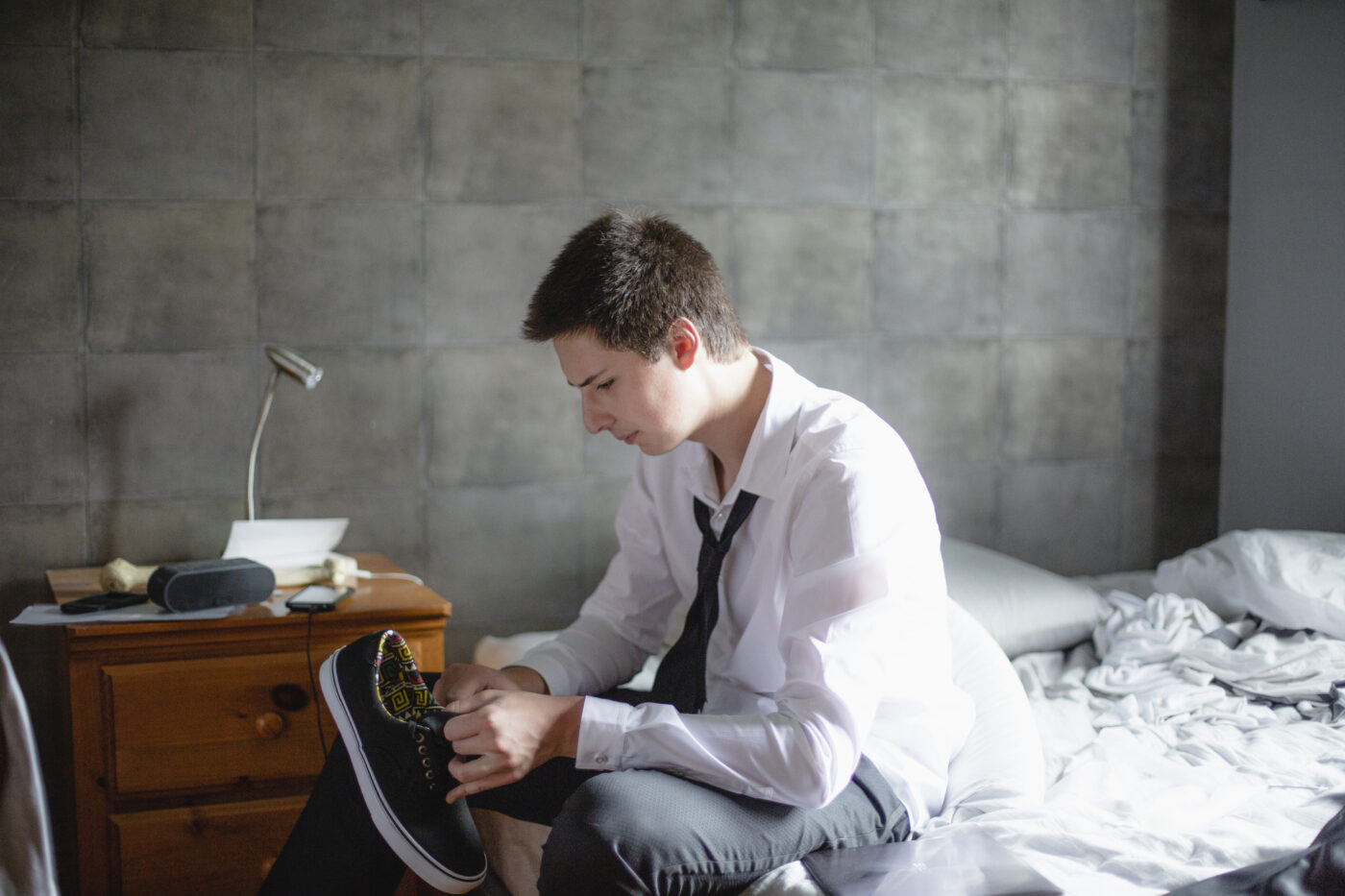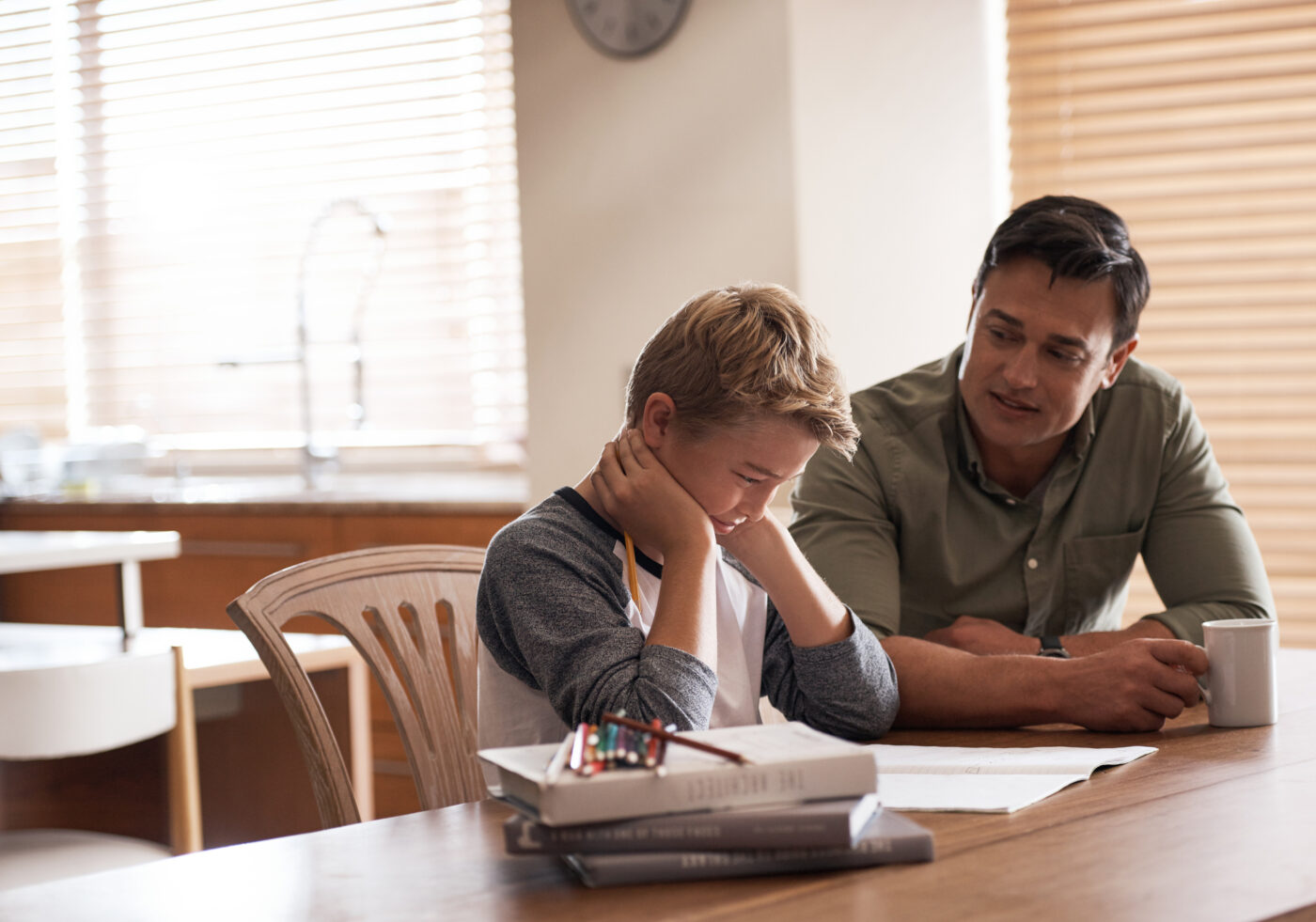I was right in the middle of something at work when my phone rang. It was my wife. I let it go to voicemail, but she immediately called again. That meant it was an emergency. I expected to hear a frantic voice when I answered—perhaps something had happened to our 1-year-old son. Instead, she sounded calm but concerned. “What’s going on?” I asked. She answered immediately: “I’m pregnant.” My reply? “Oh crap.” Yep, that is how I responded to the announcement of our second child. Can’t take that back. Was I thinking about all the joy that child would bring to our lives? Nope. I was thinking about the stress, the financial burden, the lack of sleep, the hospital visits, the financial burden, the responsibility, the financial burden, and also the financial burden. Come to think of it, I think I had the same response the first time my wife was pregnant.
If you’re anything like me, you know there’s never a perfect time to have kids. You can never be fully prepared for it. It’s one of the experiences that you have to jump into with courage and faith. And there are plenty of other experiences like that, too. We try to prepare our kids as best we can, but for some things, hands on experience is the best teacher. Here are 5 things your kids will never be ready for but need to do.
1. Take responsibility.
We can train kids to be disciplined, but they will never know what it means to be responsible until they are given responsibility. You can start small and keep it age-appropriate, but as kids get older, they need to be given more and more responsibility. Just remember, they will fail. It’s part of the learning process. They need hands on experience and training, not the pressure of unrealistic expectations.
2. Speak in public.
My first opportunity to speak in public was a complete train wreck. The teacher even told me he was disappointed in me while I stood humiliated in front of the class. You just never know how you’re going to react to being in front of people until you do it for the first time. Then you can prepare and improve. Kids who get into the habit of speaking in public improve their communication skills and can be empowered, learning how to hold a crowd’s attention. But they can’t learn best through a book, lecture, or class. They just need to do it.
3. Work out relational conflict.
This is difficult for everyone—well, almost everyone, though the people who find it easy probably aren’t as good at it as they think. Having the courage and skills to work through relational conflict is something you build, like a muscle. That’s as long as you’re working toward reconciliation and not just trying to win. The more it’s done with sincerity and humility, the better a person will get at it over time. So start your kids young. Walk alongside them in it, but don’t do it for them.
4. Confront an authority figure.
Working out relational conflict with a peer is one thing. But at some point, your child is going to be treated poorly or unfairly by a teacher, coach, or boss. Your kids will need to learn how to speak up for themselves and for what is right. You can try to prepare them, but the first time they try to have this conversation, it may be a disaster, and that’s OK. More than likely, they’ll have a game plan, but the authority figure will say something they didn’t expect and they won’t know how to respond. Later, the perfect response will come to their mind. Again, this is how they learn—with hands on experience. So let them fight these battles.
5. Face trials.
Even though I had told a friend I didn’t think my dad was going to live more than 10 more years, I was completely unprepared the day he passed away. I was equally unprepared for the day I lost my job with a 1-year-old and a baby on the way. Challenges, setbacks, obstacles, tragedies, heartbreaks—life is full of them. Most of them blindside you like a wave flipping you to the ocean floor. Our kids can’t avoid trials, and we can’t protect them from all the pain, nor should we. James 1:2–4 says, “Consider it pure joy, my brothers and sisters, whenever you face trials of many kinds, because you know that the testing of your faith produces perseverance. Let perseverance finish its work so that you may be mature and complete, not lacking anything.” Facing trials produces strength. As difficult as it may be to watch our kids struggle, they will, and we need to let them.
Sound off: What are some other things our kids will need hands on experience to learn?











Huddle up with your kids and ask, “What is one thing you’ve never done that makes you nervous?”